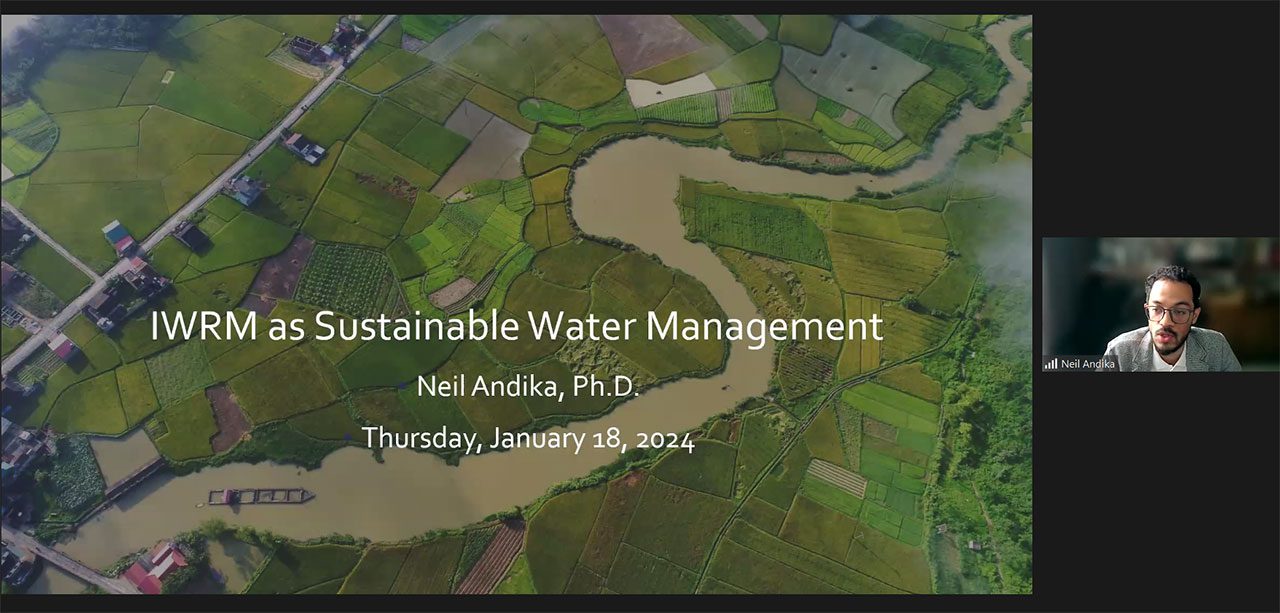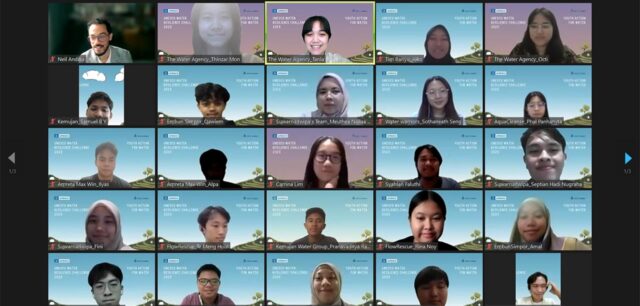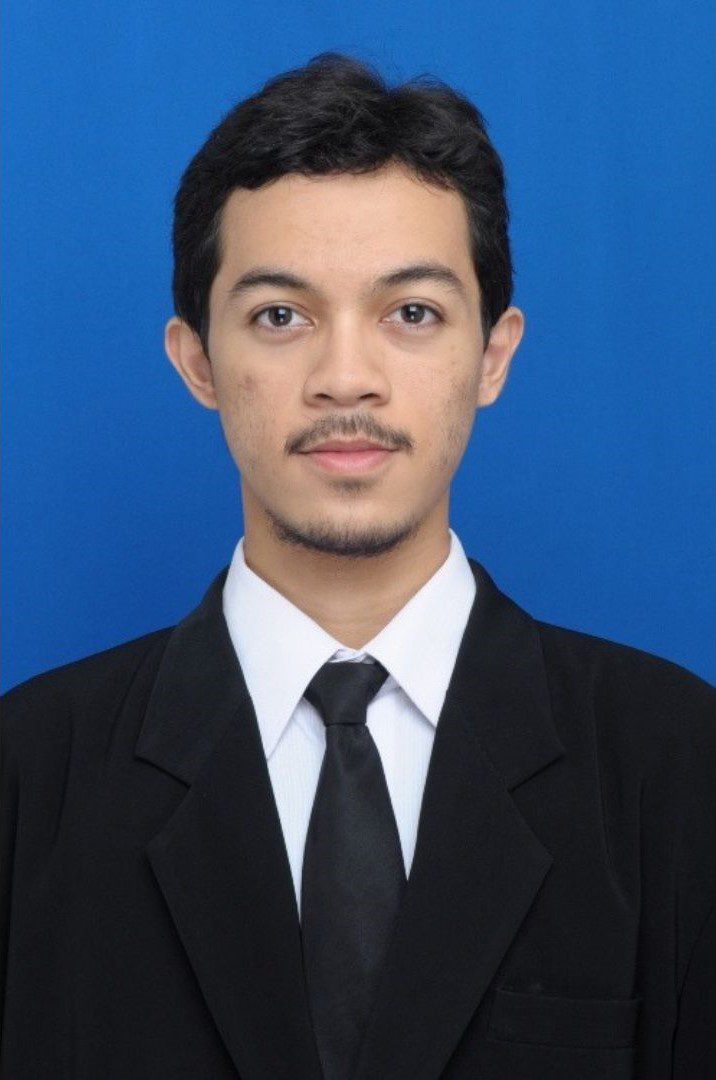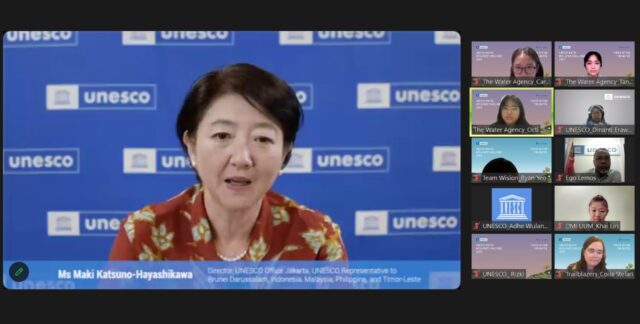Undoubtedly, water plays a vital role in the lives of everyone. Humans depend on water for various needs, ranging from consumption to maintaining hygiene. The responsible management of water is essential to avoid unnecessary wastage, as improper handling can result in adverse effects, such as flooding. And the water-related issues in UNESCO-designated sites need to be sloved with the systematic innovative water management. On January 18, 2024, Mr. Neil Andika delivered a presentation titled “IWRM as Sustainable Water Management” to address the important roles of water management in water resilience. Let’s delve into his insightful presentation!
Mr. Neil emphasized the significant impact of climate change on the water cycle and its vital importance to humans, flora, and fauna. He highlighted the connection of water issues with various aspects of life, including health and the economy. River basin management, particularly in agriculture, was emphasized as a crucial and easily understandable approach.
The planning of Integrated Water Resources Management (IWRM) involves collective action to integrate diverse perspectives into action programs and infrastructure development. The “Ten Golden Rules of Basin Planning” were emphasized for practical implementation. Mr. Neil discussed the environmental, economic, and social benefits as fundamental objectives of basin planning. Real-time data on water availability versus needs, watershed preservation, and agriculture techniques for water resource management were also covered.
Technological tools, particularly software applications, are essential for effective water management. Mr. Neil highlighted the use of inflow prediction and underscored the significant role of Artificial Intelligence and Machine Learning, providing examples. The presentation concluded with insights into what humans can do for urban water management, including techniques such as drainage systems, water pipeline systems, leak detection, remote sensing, automatic water level recording, rainwater harvesting, and groundwater preservation.
The teams actively engage in this training session, by discussing with Neil to understand not only theoretical but also practical implementation of integrated water resources management. Thanks to Neil, the teams will include this knowledge in their ideas to address and mitigate the water-related issues in UNESCO-designated sites.


About the speaker

He is an Assistant Professor in the Department of Civil and Environmental Engineering at Universitas Gadjah Mada, Indonesia, who holds a PhD in Civil Engineering with a focus on hydraulics from Colorado State University. His research projects include the development of hydrological and reservoir operation decision support systems. Mr. Andika’s commitment extends beyond academia, with active involvement in professional organizations such as the Asia Water Council and the Indonesian Hydraulics Engineering Experts Association. His impactful publications and invited speaking engagements show his commitment to sharing knowledge and fostering the next generation of leaders in environmental sustainability.





